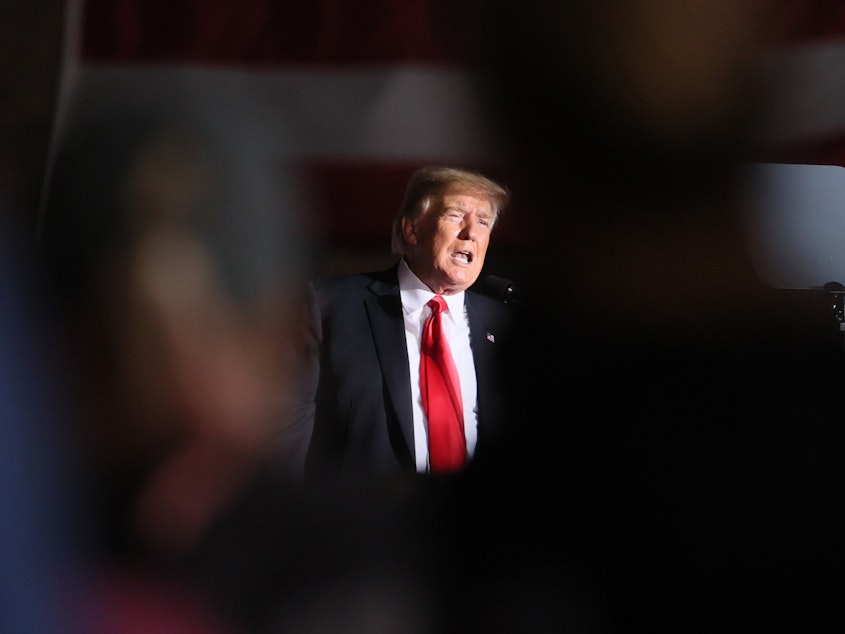Trump sues to try to stop the release of documents related to the Capitol riot

Former President Donald Trump is suing the Democratic-led House select committee that's investigating the Jan. 6 attack on the U.S. Capitol, and the National Archives, to try and stop documents related to the riot from being turned over to the panel.
"The Committee's request amounts to nothing less than a vexatious, illegal fishing expedition openly endorsed by [President] Biden and designed to unconstitutionally investigate President Trump and his administration. Our laws do not permit such an impulsive, egregious action against a former President and his close advisors," the lawsuit, which was filed Monday in district court in Washington, D.C., says.
Updated October 18, 2021 at 5:53 PM ET
Trump had urged former officials in his administration not to comply with subpoenas from the House panel, citing executive privilege. However, that power applies to the current sitting president only, not former ones.
Earlier this month, Biden authorized the National Archives to share a first group of documents requested by the committee, adding that other requests would be considered on a case-by-case basis.
Lawyers for Trump described the Biden administration's waiver of executive privilege as a "myopic, political maneuver."
The Jan. 6 committee and its chair, Rep. Bennie Thompson, D-Miss., had no immediate comment on the lawsuit.
Trump spokesman Taylor Budowich criticized the investigation as "a partisan sham to distract Americans from the Democrats' policies that are killing and robbing Americans."
The committee includes seven Democrats along with two Republicans who have been critical of Trump.
The former president's lawsuit came a day before the committee is set to vote on a criminal contempt report for former Trump adviser Steve Bannon, who failed to show for a requested deposition Thursday.
Turning to the courts was a maneuver used by Trump throughout his presidency to keep potentially embarrassing documents, such as his tax returns, out of the public eye. [Copyright 2021 NPR]



